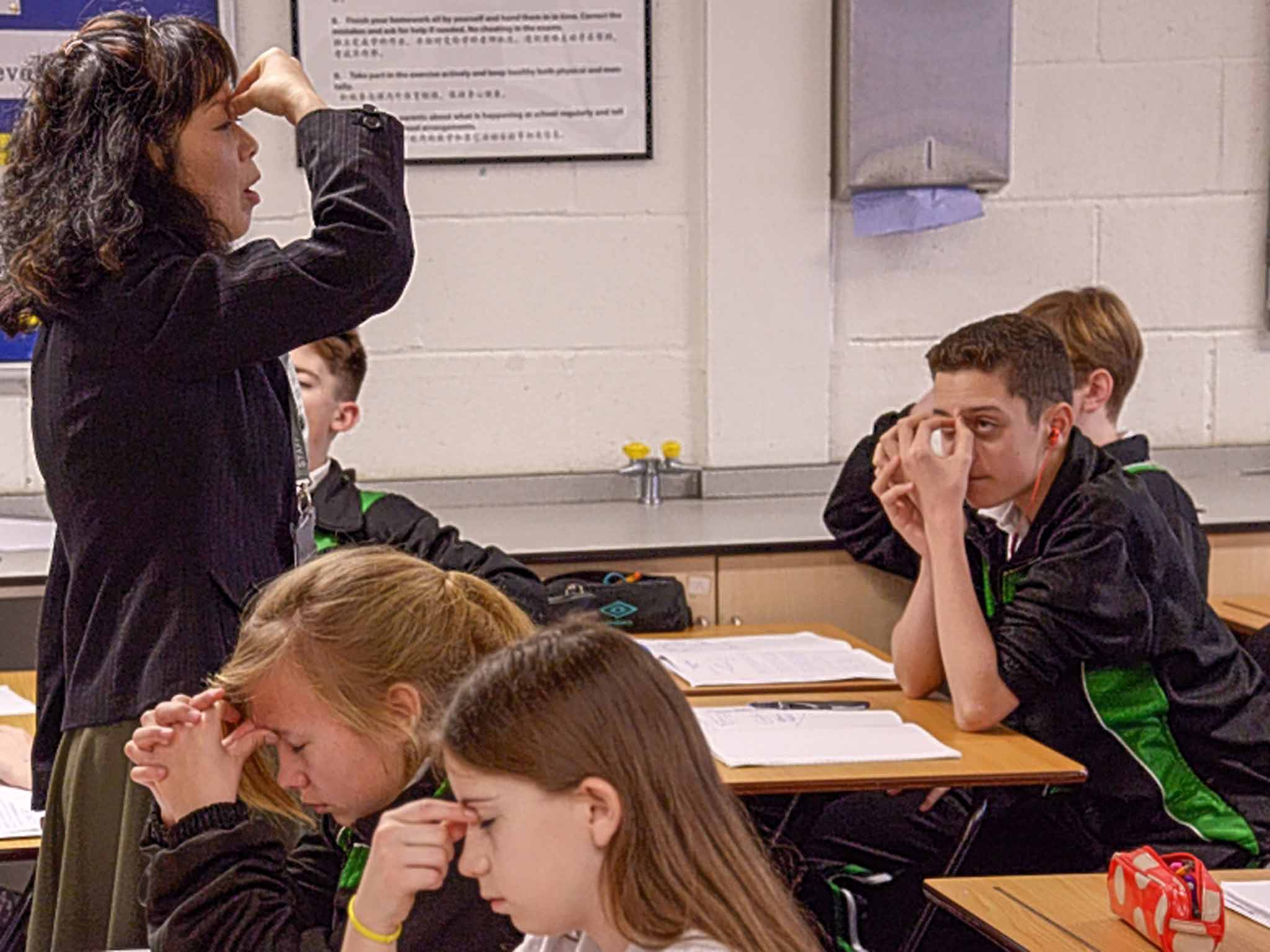We don't need Chinese teachers to improve British schools - and it patronises my colleagues to say so
Having taught in the Far East as well as the UK, I see answers closer to home

Your support helps us to tell the story
From reproductive rights to climate change to Big Tech, The Independent is on the ground when the story is developing. Whether it's investigating the financials of Elon Musk's pro-Trump PAC or producing our latest documentary, 'The A Word', which shines a light on the American women fighting for reproductive rights, we know how important it is to parse out the facts from the messaging.
At such a critical moment in US history, we need reporters on the ground. Your donation allows us to keep sending journalists to speak to both sides of the story.
The Independent is trusted by Americans across the entire political spectrum. And unlike many other quality news outlets, we choose not to lock Americans out of our reporting and analysis with paywalls. We believe quality journalism should be available to everyone, paid for by those who can afford it.
Your support makes all the difference.The blazers are gone and the uniform becomes that of a tracksuit, as pupils march in neat, military lines to the sports field. A typical Chinese school day begins in sunny Hampshire, with choreographed physical movement, synchronised by the teachers.
So opens BBC 2’s Are Our Kids Tough Enough? Chinese School - yet another social experiment focusing on the virtues of alternative styles of education. For one month, the guinea pigs are 50 Year 9 pupils in a Hampshire Comprehensive. Will they embrace the Confucian concepts of ‘Li’ (Order) and Jen (‘Politeness’), or will chaos and mutiny prevail?
The OECD’s Programme for International Student Assessment (PISA) “evaluates” education systems worldwide by testing 15-year-olds in key subjects. In 2012, Shanghai ranked first in Maths, Reading and Science, ahead of Singapore and Hong Kong China. Since then policy-makers have jumped at the chance for two week package holidays, as China and Shanghai became the hot spots for Edu-Voyeurism.
I consider myself very fortunate to have worked in International Schools, across 3 continents, for nearly 15 years. They have enriched my life and opened up my world view beyond the norms of this Sceptered Isle. So why did I grimace at the mere thought of last night’s programme – let alone watching it?
I recently returned from being a Vice Principal and Teacher of Psychology from an International Baccalaureate school in Hong Kong. I loved the SAR as it is called, and teaching there provided some insight into how local culture intertwined with the daily experience of educating Hong Kong – Chinese students.
And therein lies a key aspect of my frustration: my pupils’ sense of who they were did not get left at the classroom door in Hong Kong. They were shaped by their nation, its history and its traditions. Their thoughts and ambitions flowed out of their identity as Hong Kong Citizens.
You could see this in their desire to go to private tuition both before and after a normal school day starts.
You could see it in them rapping my office door at lunchtime and asking me to mark extra Psychology homework they had completed. (Apparently, I hadn’t given them enough.)
You could see it in the two jobs their parents worked to be able to send them to the best schools and the best universities, helping them on the path to becoming the engineers and lawyers of tomorrow.
And you could see it, too, in the self-harming that followed when 11 A* at GCSE dropped to 10 A* and 1 A, “shaming” the family and its sense of honour.
Some of my pupils simply worked too hard at the expense of enjoying growing up. Perhaps there is a middle-ground where we can espouse the virtues of hard work, effort and ambition - but not when they have psychological implications that seriously threaten the well-being of school pupils.
No question, there are things that we can learn from each other across the various systems of education worldwide. But, looking closer to home, I can’t help feeling the following:
Maybe, just maybe our systems and our schools are not the dystopian, Victorian factories that some suggest…
Maybe, just maybe a strict orthodoxy of not just what to teach but how to teach becomes a prescription too far for a profession that projects teachers, and not just pupils, as self-reflective learners - something more than automatons of knowledge transmission.
Maybe, just maybe, with our base of hard-working, skilled and dedicated teachers we can make things better – not just by focusing on what others do well, but on what we do well also, and maximizing it.
And maybe, just maybe, rather than flying teachers in from 9,000km away, we can appreciate and open dialogue with what is happening just down the road...
Join our commenting forum
Join thought-provoking conversations, follow other Independent readers and see their replies
Comments